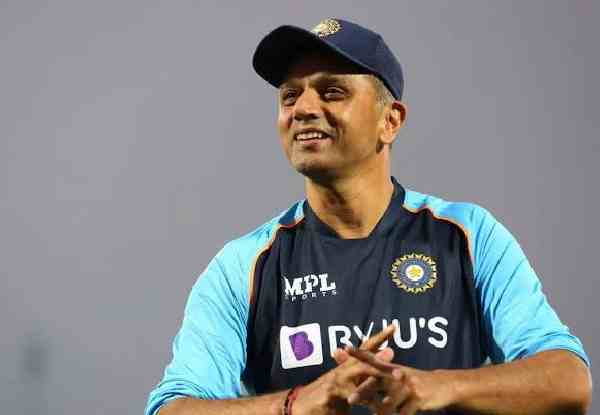It’s a mark of the respect and admiration that Rahul Dravid commanded during his playing career that even his opponents didn’t want to see him fail. When Australia toured India in 2008, losing 2-0 in a four-Test series, Dravid’s contribution to the Indian cause was a paltry 120 runs. Before the Australian team left Indian shores, Ricky Ponting, then their captain, had a chat with Dravid. “You’re not doing a whole lot wrong” was the gist of his message.
Even as the man who had been India’s unchallenged No.3 for the better part of a decade struggled to work the ball off the square, his Australian counterpart offered empathy and understanding. Ponting told Dravid that the corner would be turned soon.
It didn’t happen in India’s next Test. In the aftermath of the Mumbai terror attacks in November 2008, India and England played out a Chennai Test protected by close to 5,000 policemen in and around the venue. In a game now remembered for Sachin Tendulkar’s unforgettable final-day hundred, as the team pulled off a record chase (in India) of 387, Dravid tallied 3 and 4.
By then, the drought was very real. Since making a century on the most placid of Chepauk tracks against South Africa earlier in the year, Dravid had made 342 runs in 19 innings. Only twice had he crossed 50. With S Badrinath and others waiting in the wings, it seemed only a matter of time before the selectors decided enough was enough.
The press box isn’t usually a place overflowing with kindness. But even among the ranks of the travelling British media, there was a marked reluctance to put the boot into Dravid. Almost to a man and woman, they admired him and how he had always tried to play the game. Memories of his debut series in England, and the 600-odd runs he had amassed in 2002 shaped their views, and when the caravan travelled to Mohali for the second and final Test, there was merely sad acceptance that it might be Dravid’s last.
On a sticky pitch, he batted nearly eight hours and 328 balls for 136. It wasn’t pretty or elegant to watch. But the sheer bloody-mindedness with which he went about his business suggested that the sails hadn’t been permanently damaged, that there were more epic voyages to come.
He would make another 10 centuries in a two-year period between November 2009 and November 2011, playing a big part in India climbing to the top of the Test rankings. Three of those came in England in 2011, in front of a media pack that almost adored him, in a team that was slowly falling apart after the mental and physical exertions of winning a World Cup on home soil.
And then, just as suddenly, it was over. One poor series in Australia – bowled six times in eight innings – as India were routed 4-0, and Dravid decided that it was time to move on and give the likes of Virat Kohli and Cheteshwar Pujara time and space to grow.
More than a decade on, one of Indian cricket’s biggest stalwarts turns 50, while coaching some of those players he once played alongside. You’ll find opinion nearly unanimous when it comes to the quality of Dravid the batsman, but the jury remains out on him as a coach. He enjoyed considerable success at academy level, and with the Under-19 and A teams, but the suspicion persists that that’s the role he’s best suited for.
Having hardly made a dent in Twenty20 cricket, it remains to be seen if he’ll be the coach who manages to end India’s drought at the T20 World Cup, which they haven’t won since the inaugural tournament in 2007. Or is it time to let Dravid focus on the red-ball side, and let someone more attuned to the white-ball formats take charge for those matches?
England, currently blazing the trail in both Test cricket and the two white-ball formats, have certainly shown in the past year that a split coaching arrangement can work, with Brendon McCullum revitalising an awful Test side, and Matthew Mott leading the T20 team to a second World Cup.
This, though, is not the time for such a debate. Instead, it’s a time when we should just appreciate Dravid, and everything that he has ever done for Indian cricket. Step in as a stopgap wicketkeeper to better balance the team? Check. Open the batting in difficult conditions? Did that too. Behave with considerable dignity during one of Indian cricket’s most toxic phases, Greg Chappell’s two-year tenure as coach? Check.
He never had Tendulkar’s aura, Sourav Ganguly’s charisma, or even VVS Laxman’s elegance at the crease. But if you run your eyes over some of Indian cricket’s greatest victories – Eden Gardens 2001, Headingley 2002, Adelaide 2003 and Perth 2008, to name just four – one name will keep cropping up. A man who never sought the limelight, but a true champion.




